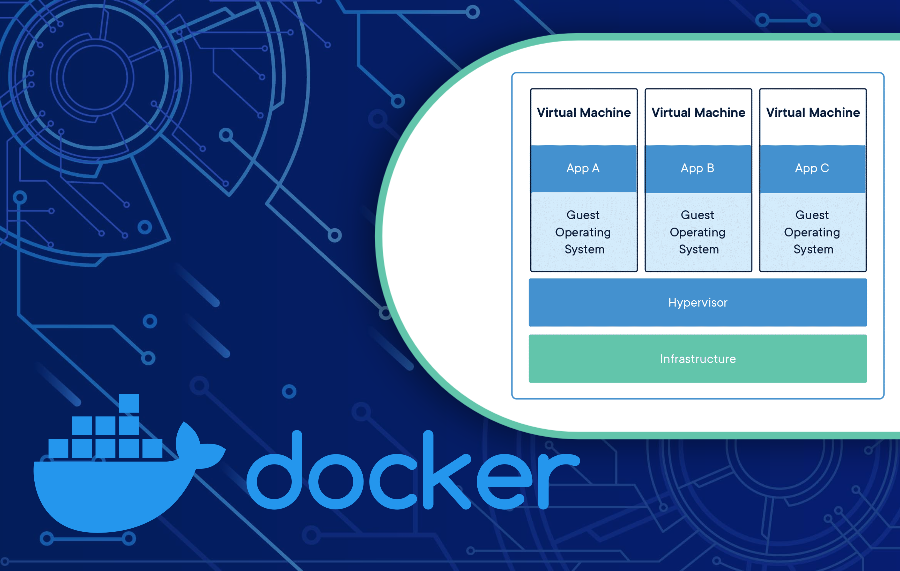Docker is a Container Platform that makes it easy to build and deploy high-performance applications on the cloud.

What is Docker?
Docker is a platform that enables software developers to build and run applications inside containers. The software that does the work of hosting the containers is called Docker. It was first launched in 2013 and is developed by Docker, Inc. This makes development on the cloud more efficient, easier, and less expensive.
Docker also allows users to share applications between nodes in the cloud, making it an ideal platform for deploying large-scale applications such as web services or big data.
Docker is free and open-source software, so you can use it for your own projects as well as develop container-based applications for other platforms such as the Mac or Windows store.
Docker is changing the way we build and run the software, and it’s doing it in a big way.
Cloud Computing
Cloud computing is a way of using the Internet to access files and applications stored on remote servers. This technology has the potential to change many aspects of our lives, including work and education.
Cloud computing allows you to access files and applications from any device, be it your computer or phone. Thanks to this, you can work from anywhere in the world without leaving your desk.
Cloud computing also allows you to store your data online so you can access it anytime, anywhere. This means you can use your computer or phone as a storage device for your files without having to have them on site.
There are three main types of clouds: public, private, and hybrid. Public clouds are open to anyone who wants to use them, private clouds are owned by a few large companies, and hybrid clouds combine public and private cloud services.
Docker for Cloud Computing
Docker for Cloud Computing is a software program used to create and manage clouds of computers so that applications can be run across multiple machines without having to worry about which machine has which application open.
It does this by allowing each machine in the cloud to have a copy of the applications and data needed for those applications, as well as access to other resources like storage space and internet connection.
Cloud Computing and Containers technology
With cloud computing, we can use technologies like containers to speed up your workflow and make your life easier. With containers, we can quickly and easily deploy our applications to large clouds, giving you more time to focus on your content and less time spent on deployment and deployment issues.
Containerized Applications in Cloud Computing
A container application is a software application that is packaged in a self-contained, self-contained environment. This allows you to quickly and easily build and deploy applications without having to worry about the underlying operating system or hardware.
Docker is changing the way we build and run the software
Docker is a container technology that allows developers to build and run software in a controlled setting. With Docker, you can write code and run it on a variety of platforms, from Linux distributions to macs.
Docker is also valuable for deployment. You can use Docker to deploy applications to remote servers or networks, or to deploy applications on demand.
What are its benefits?
The benefits of docker are as follows -
- It makes building and running software easier than ever before.
- It eliminates the need for multiple applications and files, making your application more portable and reliable.
- It enables you to scale your applications without sacrificing performance or stability.
- It gives you control over every aspect of your application's development process, making it easy to improve the quality and efficiency of your codebase.
- It is a powerful tool for containerizing software, running your software in a secure environment, and improving the performance of your software. It's an important tool for developers who want to build and run their software in a secure, efficient way.
Docker for Containerizing software
Docker can help you containerize your software by creating a new type of file called a Docker file. A Dockerfile is like a recipe for creating a new program or application. You can use it to create a complete software application or just part of it.
Docker helps you run your software in a secure environment by using an encryption algorithm called TLS. This ensures that your data is safe while being stored and used by the docker daemon.
The docker daemon uses several algorithms to improve the performance of your software. One algorithm is called “scalability”, which refers to how quickly your programs can be processed and executed when using docker containers for multiple applications running on different machines.
Another algorithm is called “concurrency”, which helps reduce the amount of time needed to run multiple programs side-by-side on one machine.
What are Kubernetes and Docker?
Docker and Kubernetes are two of the most popular Container Management Systems on the market. They’re both great options for building and Operating systems for clusters of devices.
Both are two different systems for deploying containers. Docker is a useful tool for developing applications, while Kubernetes is more versatile for managing and deploying containers.
What is the difference between Docker and Kubernetes?
Docker and Kubernetes are two different solutions for container management.
Docker is a software system that enables you to manage containers and applications inside of your own computer. It was created by San Francisco-based, Docker Inc. Docker is used by millions of people around the world, including top branded companies such as Google, Amazon, Facebook, and Netflix.
Kubernetes is a container management system that was developed at Google Cloud Platform and has been adopted by many companies, including Amazon Web Services, Microsoft Azure, IBM Bluemix, and VMware.
Kubernetes is used to manage multiple containers on different nodes in a cluster. It allows for multiple container images to run side-by-side on different nodes within a cluster. This feature makes it possible to use alternative operating systems and hardware without breaking the bank. Also, it offers an event-driven model for controlling your containers that makes it easier than ever to respond quickly to changes in their environment. It is based on the Canaanite software project and was created as an open-source alternative to Amazon Web Services (AWS) or Google Cloud Platform (GCP). It has been designed to be more reliable and efficient than AWS and can run on multiple platforms including Windows, macOS, Linux, Solaris, FreeBSD, AIX, FreeBSD 11+, OpenShift 3+, Amazon Web Services EBS 9+, and many more.
While Kubernetes does not require any specific programming languages like Docker to manage containers, it does require a custom controller called a Scheduler which manages all the masters in a cluster.
Docker is container software that enables developers to create and manage multiple applications in the same container. Kubernetes, on the other hand, is a platform that helps managers control and manage multiple containers across different nodes.
Kubernetes is Useful for Developing Applications
Kubernetes is used by organizations to manage their entire data center on one platform. It provides a way for users to launch different types of containers on different nodes so that applications can run side-by-side without conflicts. As result, Kubernetes has become popular among startups, who want to develop and test their applications quickly and easily on a large scale.
Docker vs Kubernetes: Which to learn first
Docker and Kubernetes seem to be similar, but they are not, the two platforms are quite different types. If you want to work with a containerized application without worrying about deployment issues, you should start by learning Docker. If you want to keep multiple containerized applications running, Kubernetes is a great option for you to use. Thinking from the perspective of a developer, you should start with Docker first and then start with Kubernetes.


0 comments:
Post a Comment